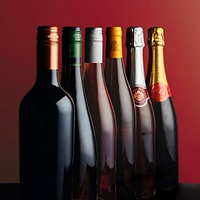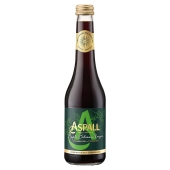New Year's EveFresh & ChilledBakeryFood CupboardFrozenBeer, Wine & SpiritsTea, Coffee & Soft DrinksHouseholdToiletries, Health & BeautyBaby & ToddlerPetHomeShop by OccasionNewOrganic ShopFirst For WelfareDietary & LifestyleWaitrose BrandsBrandsNewEveryday ValueNo.1 ChristmasNewChristmas CheeseboardParty FoodWine, Fizz & DrinksDine InDessertsFresh FruitFresh VegetablesIn Season Fruit & VegetablesFresh Salad & HerbsReady MealsFresh MeatFresh Chicken & PoultryChilled Fish & SeafoodMilk, Butter & EggsCheeseYogurtsChilled Juice, Smoothies & DrinksCooked Meats, Deli & DipsPies, Quiches & Savoury SnacksDessertsParty FoodEasy To Cook MealsFresh Pizza & Garlic BreadFresh Pasta & SaucesFresh SoupsVegetarian FoodVeganFood To GoBreadFresh BreadCakes & TartsRolls, Bagels & ThinsBaguettes, Ciabatta & Continental BreadsWraps, Tortillas & Pitta BreadBirthday & Celebration CakesCroissants, Brioche & PastriesCrumpets, Pancakes & WafflesDoughnuts, Muffins & CookiesPart Baked Bread & RollsTeacakes, Fruit Loaves & SconesPatisserieBreakfast CerealCrisps, Snacks & NutsChocolate & SweetsBiscuits & CrackersTins, Cans & PacketsRice, Pasta & PulsesSugar & Home BakingJam, Honey & SpreadsDried Herbs, Oils & VinegarCondiments, Dressings & MarinadesJarred Goods, Pickles & OlivesDessertsCooking Sauces & Meal KitsIce Cream, Frozen Yogurt & SorbetsFrozen Vegetables, Herbs & RiceFrozen Fish & SeafoodFrozen Meat & PoultryFrozen Chips & PotatoesFrozen Ready MealsFrozen DessertsFrozen Fruits & Smoothie MixesFrozen Bread, Croissants & PastryFrozen PizzaFrozen Snacks & Party FoodFrozen Vegetarian FoodFrozen VeganIce CubesWineChampagne & Sparkling WineBeerCiderSpirits & LiqueursCocktails & Pre Mixed DrinksAlcohol Free and Low Alcohol DrinksTonic & MixersIce Cubes, Lemons & LimesGlassware & BarwareGiftsTeaCoffeeHot Chocolate & MaltsWaterSquash & CordialsJuicesFizzy DrinksAdult Drinks & MixersSports & Energy DrinksFunctional & Wellness DrinksKids & Lunchbox DrinksLaundry & DetergentsToilet RollsCleaning CupboardDishwashingGeneral HouseholdKitchen RollsCling Film, Foils & Food StorageCandles & Air FreshenersBin BagsEco FriendlyTissuesLight BulbsBigger PacksBath, Shower & SoapDental CareHair CarePharmacy & HealthFacial SkincareDeodorants & Body SpraysBody CareHealth & Beauty GiftingTissuesMen's ToiletriesShaving & Hair RemovalSensitive Bladder & IncontinenceNatural BeautyTights & SocksPeriod & Intimate CareSun Creams & After SunBaby & Toddler FoodMilk & FormulaBaby & Toddler ToiletriesBaby & Toddler WipesNappies & PantsBottles & Breast Feeding AccessoriesBaby & Toddler HealthcareBrandsBaby & Child ToysBaby Toys, Clothing & LaundryCatsDogsBird FoodShop By BrandTreatsCook & DineBeddingBath & Bathroom AccessoriesGarden & OutdoorCandles & Home FragranceHome AccessoriesFresh Flowers & PlantsToysCards, Gifts & PartyReusable BagsElectricalsStationery, Home Office & ElectricalsSewing, Clothes Care & RepairUtilityNewsagent & TobacconistNewsagentsGiftsBuild a Food HamperCharcuterieAfternoon TeaEasy Cook DinnerLunchbox EssentialsWork from Home LunchBottomless BrunchBreakfast on the GoMovie NightFresh, Chilled & BakeryDrinksFood CupboardHousehold & FamilyToiletries, Health & BeautyFrozenDuchy OrganicFresh & ChilledBakeryFrozenFood CupboardTea, Coffee & Soft DrinksBeer, Wine & SpiritsFree FromPet FoodBabyBeautyHouseholdBetter Chicken CommitmentFree Range PorkBritish LambFree Range EggsBritish BeefContinental CharcuterieResponsibly Sourced Fish30 Plants a WeekVeganFree FromVegetarianHigh ProteinHealthy OptionsAlcohol Free and Low Alcohol DrinksKosherB CorpFairtradeFunctional & Wellness DrinksPlant LivingMeat FreeNo.1 Waitrose & PartnersEssential Waitrose & PartnersDuchy Organic Waitrose & PartnersCooks IngredientsThe Levantine TablePlantLivingWaitrose & Partners FoundationLeckford EstateOttolenghiWildfarmedGymkhana SaucesAll Dressed UpBang! Curry KitsBaz & CoBella & DukeBlanco NinoChariTeaFrejaGood PhatsHip PopLiving ThingsOcean SaverOdyseaOle & SteenOmega PresseryPlanet FarmsPresto CoffeePunchyRhythm 108Tap SocialThe Estate DairyThe Glorious MessThe Good Crisp CompanyTiba TempehTonic HealthTorresWilderbeeReady Made Pancakes & CrepesPancake Mix & IngredientsToppings & SaucesVegan & Free From PancakesFruit, Veg & SaladChilled Meat & FishDairy & EggsFood CupboardBakery & DeliFrozenTea, Coffee & Soft DrinksHealth & BeautyPet & HouseholdBooksNewspapersTobacconistNursery & Pre-SchoolMenyuJapanese IngredientsSushi and BowlsJapanese Sake and BeerJapanese Desserts and DrinksValentine's Day Gifts, Cards & WrapBurns Supper InspirationDessertsWhiskyCooking IngredientsReady MealsAccessoriesVitamin DIronFemale HealthFruit and VegetablesMeat and FishDairy and Eggs
Offers
Loading finished
0 added
0 Belazu 1.34 Balsamic Vinegar of Modena in trolley.
Item price
£12.20Price per unit
£4.88/100mlNew
0 added
0 Aspall Apple Balsamic Vinegar in trolley.
Item price
£3.65Price per unit
£1.05/100ml0 added
0 Belazu 1.25 Balsamic Vinegar of Modena in trolley.
Item price
£7.80Price per unit
£3.12/100ml0 added
0 No.1 Aceto Balsamico di Modena I.G.P in trolley.
Item price
£12.80Price per unit
£5.12/100ml





